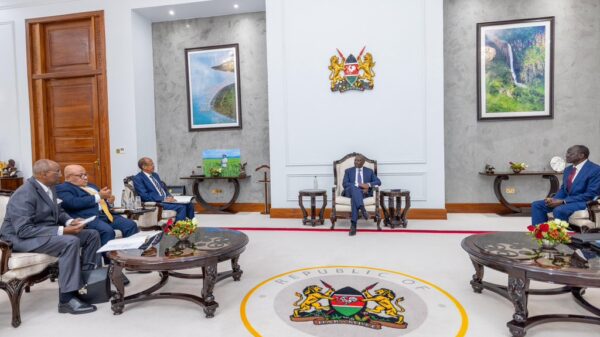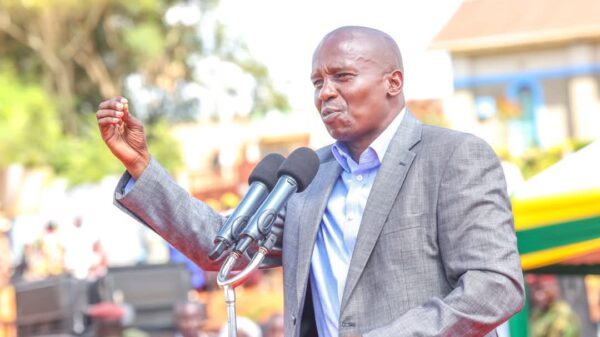NAIROBI, Kenya, Aug 3- The High Court has issued a conservatory order stopping the implementation of the Executive Order, by President Uhuru Kenyatta, which listed the Judiciary in a re-calibrated government structure putting it under Presidency.
In his ruling, Justice James Makau said the order should be stopped until a case filed by the Law Society of Kenya (LSK) is heard and determined.
Makau said the applicant has certified the principles in regard to granting of conservatory order after proving that lack of it would have led to a violation of Constitutional values and objectives of a specific right or freedom in the Bill of Rights.
“The Applicant has satisfied the aforesaid principles in regard to the granting of interim or conservatory orders. The Applicant has demonstrated an arguable prima facie case with the likelihood of success and shown in absence of the conservatory orders he/she is likely to suffer prejudice; the Applicant has further met the second principle that grant or denial of conservatory relief will enhance the Constitutional values and objectives of a specific right or freedom in the Bill of Rights; thirdly the Applicant has demonstrated, if interim orders or conservatory orders are not granted, the petition or its substratum will be rendered nugatory,” a part of his ruling read.
On May 11, President Uhuru Kenyatta issued an Executive Order number 1 of 2020, which listed the Judiciary and Judicial Service Commission (JSC) among 39 other ministries, state departments, constitutional commissions and independent offices under the Office of the President.
Other institutions which were put under Presidency include, The Public Service Commission, Teachers Service Commission, The National Police Service Commission, Parliamentary Service Commission, Independent Boundaries and Electoral Commission; Office of the Director of Public Prosecution; Ethics and Anti-corruption Commission; Commission on Administrative Justice; The National Land Commission; The Officer of Controller of Budget; Commission on Revenue Allocation, Salaries, and Remuneration Commission; Kenya National Commission on Human Rights and National Gender and Equality Commission among others.
The Law Society of Kenya protested the move, and subsequently move to court arguing that the Executive Order was unconstitutional and violated the independence of the Judiciary and other independent commissions.
LSK President Nelson Havi urged the court to withdraw the order, accusing the Executive of seeking to control the Judiciary.
“The Judiciary, Commissions and independent offices are not to be under the control of the President the lines between commissions and the Executive continues to be blurred,” Havi said.
He went on to say that “It is unconstitutional for the President to purport to organize the government and set out the Judiciary, Commissions and Independent offices as institutions under or functions of ministries government departments and other constitutional bodies. He has no such powers.”
Chief Justice David Maraga also defended the independence of the Judiciary, saying whereas the Constitution empowers the President to direct and coordinate government ministries and departments; such powers as vested under Article 132 are only applicable to the Executive arm of government.
“The manner in which the judiciary operates cannot be the subject of an Executive Order made pursuant to Article 132 (3) (b) which empowers the President to direct and coordinate the functions of ministries and government departments. The Judiciary is neither a ministry nor a government department which can be organized by an Executive Order,” he said.
The Chief Justice also asserted the autonomy of the Judicial Service Commission which he chairs, affirming its independence under Article 171.















































